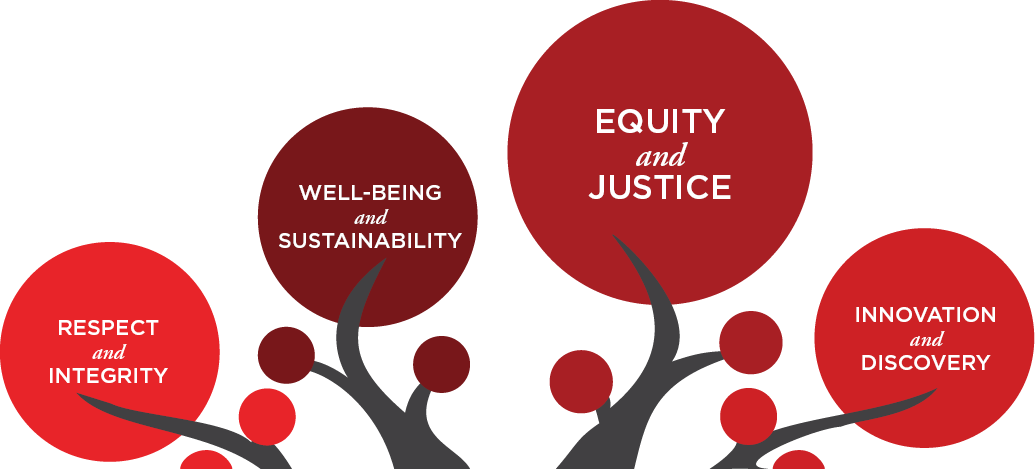Reflections on Equity and Justice

Improving the human condition requires us all to be aware of the inequalities that exist, working on fixing the systems that create the inequalities, and creating opportunities for success
At the University of Maryland, Baltimore (UMB), our core values are more than words, they are our way of life — the demonstration of what we stand for and the guide for our behaviors.
Our core values of Respect and Integrity, Well-Being and Sustainability, Equity and Justice, and Innovation and Discovery are at the heart of our mission to improve the human condition and serve the public good of Maryland and society at-large.
Since February 2025, we have been exploring UMB’s core value of Equity and Justice – We embrace and are committed to diversity, and we value inclusive and just communities. We oppose discrimination in all its forms. Engagement with this value set within the Core values Conversation has been low, especially in comparison with our exploration of the previous two value sets (Respect and Integrity; Well-Being and Sustainability).
The contemporary discourse around diversity, equity, and inclusion has inevitable created and assortment of narratives and opinions regarding its value. The UMB community engagement and response rate may reflect the current climate and the range of perspectives and uncertainties regarding the value of this core value set.
Equity is about treating everyone as individuals, ensuring that everyone has the same opportunities for success. Equity is not the same as Equality and may have been conflated with Equality. Equality is about treating everyone the same.
Fairness does not always mean sameness.
If UMB were to offer the same number of tutoring hours (e.g. 3 hours per week) to every student, regardless of their individual needs or circumstances, UMB would be demonstrating equality. If UMB were to recognize that some students – such as first-generation college students or students with disabilities – may need more support, and therefore offered additional tutoring hours or tailored support programs to help them succeed, UMB would be demonstrating equity.
Similarly, if UMB were to offer one-size-fits-all professional development to all staff and faculty regardless of their role, schedule, or prior experience, UMB would be giving everyone the same opportunity, but not necessarily the same opportunity to benefit, and therefore demonstrating equality. By offering multiple formats and opportunities for professional development – such as in-person and virtual trainings, asynchronous learning opportunities like those offered within Percipio, and role-specific content – UMB ensures that those with different needs and circumstances can fully participate demonstrating equity.
Justice is about fixing the systems that create inequalities. An example of this at UMB is the process of equity adjustment – the process through which UMB can counteract inequity in compensation when there are pay differences in similar jobs.
Improving the human condition requires us all to be aware of the inequalities that exist, working on fixing the systems that create the inequalities, and creating opportunities for success by providing individuals with what they need to reach their goals.
Thank you to everyone who engaged in the Core Values Conversation focused on Equity and Justice.


